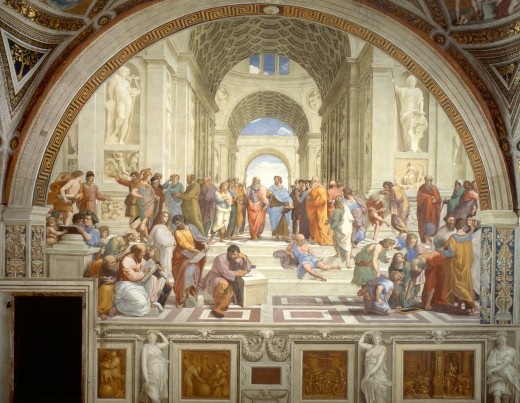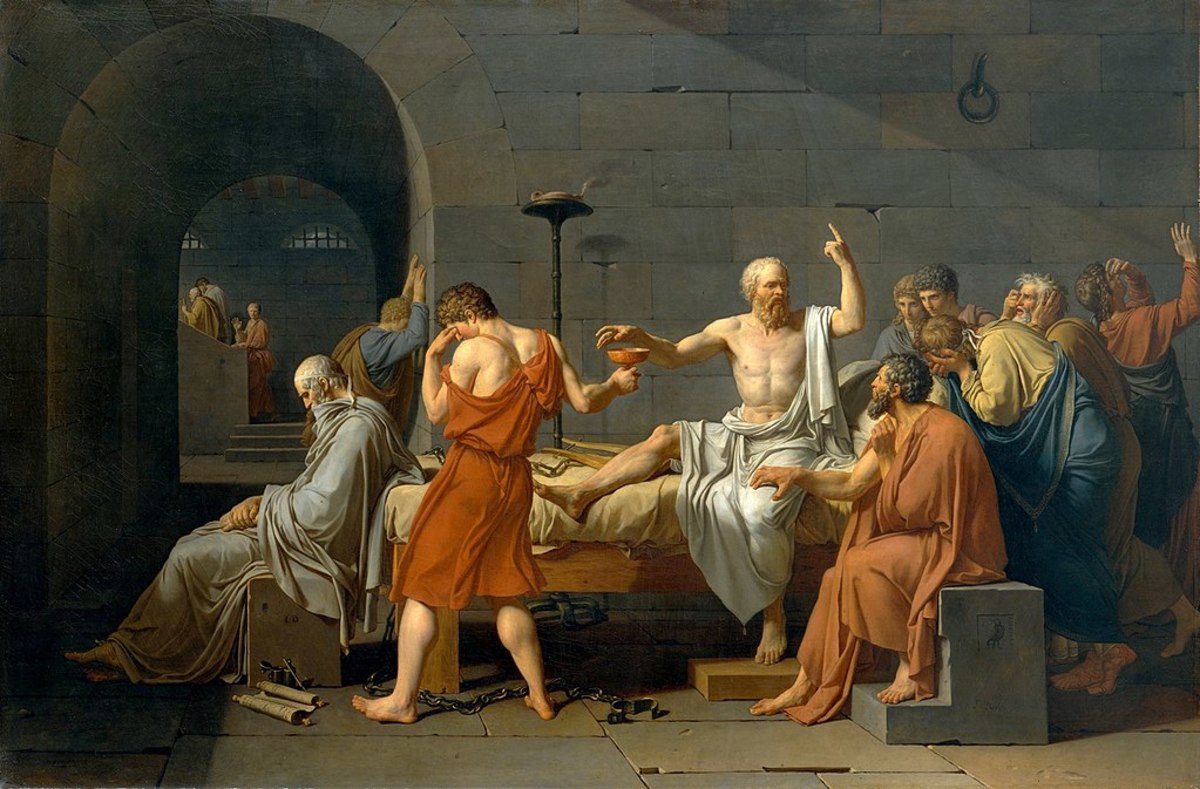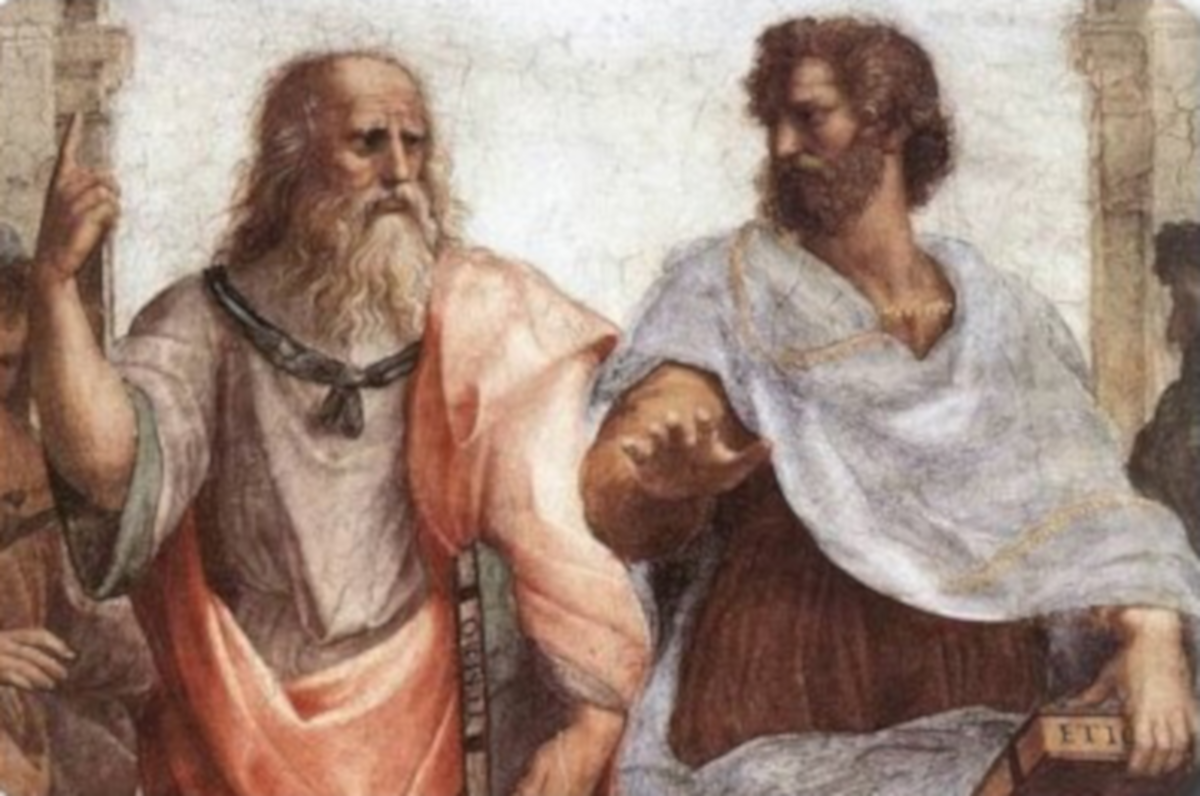Protagoras and the History of Rhetoric
Background
Sometimes historians have trouble discerning between legend and truth when a man’s life is so extraordinary. Protagoras is such a man. Not many historical documents recount the life of Protagoras, but Plato’s dialogue “Protagoras” and Diogene Laertius’ “Lives of the Philosophers” give extensive clues to the mind of this Older Sophist.
He lived somewhere between 490 BC and 420 BC; born in Abdera in Thrace and died in a disputed location. Some stories say that Protagoras died an old man in Athens. Others tell that he was driven out of Athens in a sailing ship that ended up as driftwood.
Protagoras practiced the art of rhetoric before other well-known philosophers like Aristotle and Plato. In 444 BC, Prodicus commissioned Protagoras and his skill in legal matters, to write the constitution for Thurii, a new Athenian colony.
A nomad, Protagoras spent his life traveling around Greece, teaching grammar and syntax, public speaking, criticism of poetry, and citizenship, all while able to make money. In fact, before Protagoras, teachers of higher education didn’t get paid.
His teaching style consisted mostly of lecture form and he taught primarily wealthy men who needed to learn how to be better arguers in the courtroom in order to relieve themselves from taxation burdens. Protagoras had the joyous pleasure of training men to shift their personal situations from the extorted to the extorter. Not only did Protagoras’ teaching pave the way for courtroom affairs, but also many believe he created the debate forum we are familiar with today.
A library full to the ceiling of Protagoras’ works would carry much value, but as legend says, the Greeks burned his books in an outrage. There are only two books that historians believe can be attributed to his hand; “Truth” and “On the Gods.”

Orthoepeia
Protagoras contributed to the development of rhetoric in three distinct ways: orthoepeia, the man-measure statement, and agnosticism.
Protagoras spent much time teaching on orthoepeia, or the study of the correct use of words. At the time in which he lived, Protagoras focused primarily on the use of courtroom language and the relationship between a writer’s intent and the actual meaning of the words he uses. This fascinating study aided in the interpretation of laws, a practice still used today in America’s very courtrooms.
Unfortunately, no specific works of Protagoras on grammar and syntax remain. In Plato’s aptly named dialogue, “Protagoras”, Protagoras interprets a poem by Simonides, displaying his strength in orthoepeia.
Using proper grammar and syntax is essential for an orator to communicate accurately and effectively. When attempting to convey intention and meaning, saying the wrong word or speaking improperly can completely discredit a person. On the other hand, politicians who have extensive training in rhetoric and have great speech writers, have the ability to skirt around an issue and don’t directly say what they mean for the purpose of soothing and winning over the masses. President Barack Obama is charismatic and smooth when reading from a prewritten speech, but there have been times when answering questions in unscripted debates that he has dug himself a hole by inaccurately communicating what his intentions are.

"Man is the measure of all things"
Protagoras’ second contribution is the more philosophical idea that there are two sides to every story and the man-measure statement. The very dichotomy of the stories behind his own death and debated inconsistencies within his life would make this old philosopher giggle.
The creation of the debate forum came straight from the idea that there are two sides, black and white, to every issue and both can be argued equally. Voting for a president would be a daunting task in this day and age without the debate forum where candidates can be compared and contrasted plainly in front of the country’s eyes.
Protagoras claims in his man-measure statement that “of all things the measure is man, of the things that are, that [or “how”] they are, and of the things that are not, that [or “how”] they are not” (Poster, Protagoras (c. 490 - c. 420 BCE), sec 3b par 1). Boiled down, Protagoras proclaims that knowledge is relative to the knower.
As an example, let’s say John McCain (from Arizona, a hot place) and Sarah Palin (from Alaska, a cold place) campaigned in Connecticut (where the climate is just about in the middle of Arizona and Alaska). While crossing paths backstage, the straightforward Sarah Palin complained of how hot she is. McCain looks at her astonished, and with a shiver declares that he is freezing. The perceived truth in the same situation may be different depending on who you are (and in this case, where you are from), but each is truth nonetheless.
Protagoras concluded that judgments about qualities are subjective. If something can be both hot and cold, then something could be both good and evil.
This philosophy, with regards to rhetoric, allowed someone to argue either way effectively and “make the worse case the better” (Poster, Protagoras (c. 490 - c. 420 BCE), sec 3b, par 2). Although this gave hope to a defendant with regards to being able to argue his case, unfortunately, it leads to a decline in moral standards. If there is no fixed right and wrong, someone could get away with adultery or murder because it is “right” for him to do.
Inconsistent with the possible repercussions of Protagoras’ beliefs, his own personal character, according to Plato, dripped with integrity and respect. He desired this aspect of the art to allow the revision of unjust laws and the defense in courts to gain freedom, mostly from the unfairness of the passing of liturgies from nobleman to nobleman.
Concerning the gods
If there is no standard moral law, naturally the conclusion would be that there is no ruling divine being. Protagoras wasn’t as bold to say there was no god, but “concerning the gods, I have no means of knowing whether they exist or not or of what sort they may be. Many things prevent knowledge including the obscurity of the subject and the brevity of human life” (Poster, Protagoras (c. 490 - c. 420 BCE), section 3c).
Agnosticism, rather than atheism crept into Protagoras’ blood. The immoral pantheon of Greek gods further proved his stance that there is no moral being and no moral code, only depictions of imperfect humans in deity form. Protagoras pointed out the absurdity of these beings and the stories that followed them.
Even though agnostics and those who believe there is no moral code still exist today, Protagoras played a big role in transforming the validity of the Greek gods into mere myths and showing them for what they are: dead gods. This very belief that the gods, if they exist, are too mysterious to know caused Protagoras’ legendary banishment from Athens and the burning of his books.
Despite Protagoras’ influence, not everybody credited his philosophy as truth. Aristophones in his play “Clouds” models a character after Protagoras who teaches that the gods don’t exist and neither does moral law. Mass chaos ensues. The disagreement with Protagoras’ theories launched Plato’s very own expedition towards transcendent knowledge and a fixed moral law. Had Protagoras never made his claims that made so many feel uneasy, Plato may have never made his.
The unfortunate perception that many have regarding the Sophists is that they are men who participate in verbal trickery and fallacious argumentative methods. In Plato’s “Protagoras”, Socrates cross-examines Protagoras but forces him to give short answers. When Protagoras gives longer answers full of rhetoric and trickery, he wins over the crowd with his eloquence. Nevertheless, Plato depicts Protagoras as an honest man who personally avoided such forms of banter.
Despite their notorious rhetorical forms, the Sophists along with Protagoras shifted philosophy from the focus on the natural world to human behavior and thinking. It is human subjectivity and our expression of our views that truly shapes culture and the universe.
Protagoras has influenced our modern world in extensive ways.The planet thanks him for his contributions: from setting a standard for higher education, the ability to interpret laws, the creation of the debate forum and success in the courtroom.His ideals established a foundation for rhetoric as a whole where a pantheon of philosophers firmly stood and constructed an elaborate architecture of thought.
References
Poster, Carol. Protagoras (c. 490 - c. 420 BCE). 2006. The Internet Encyclopedia of Philosophy. 6 Nov 2008.





